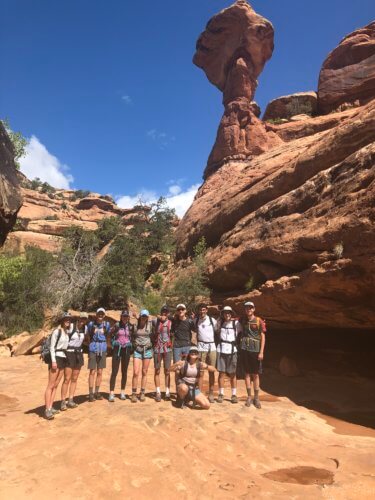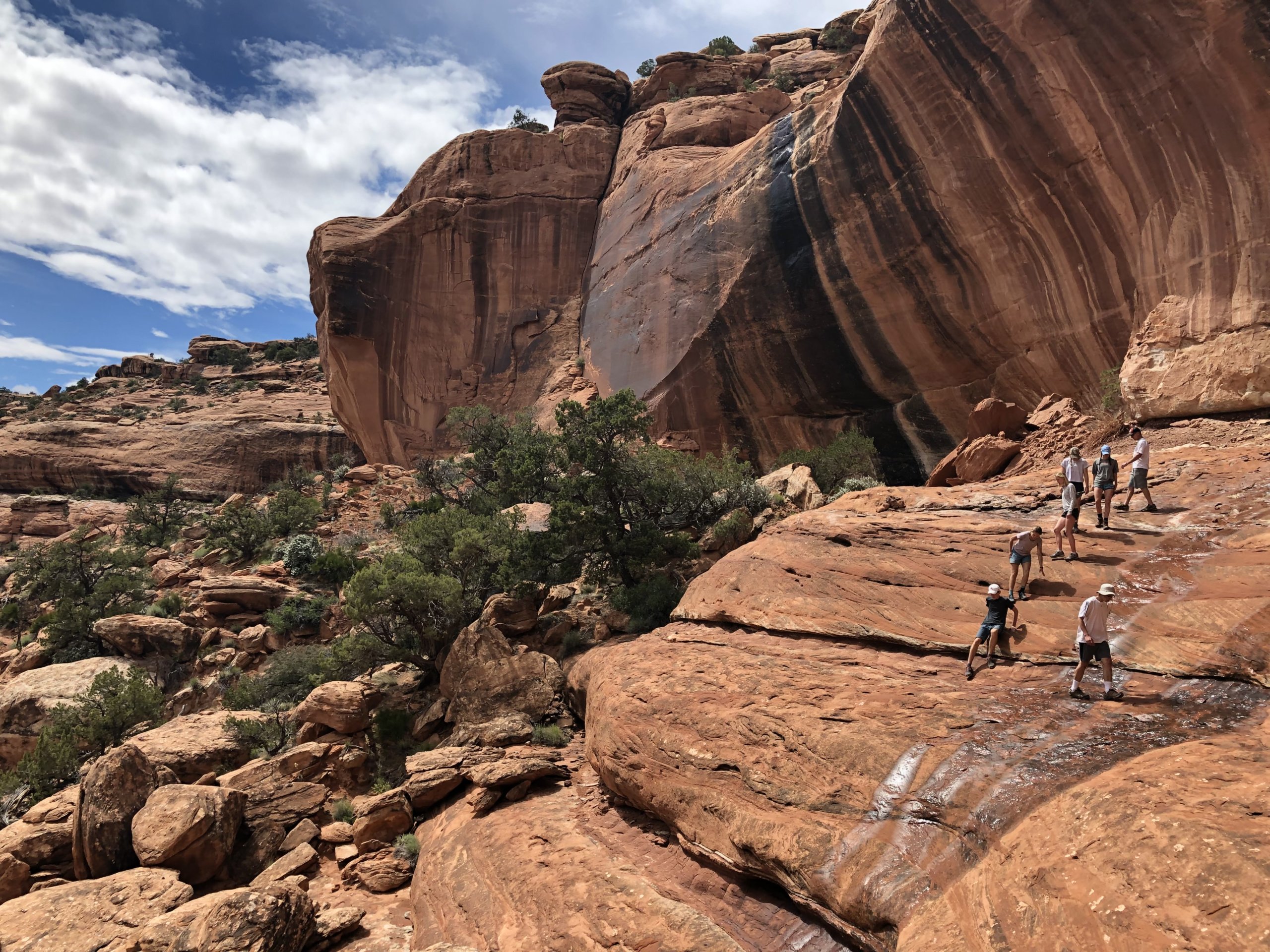It is the time of year at Colorado Academy when faculty are preparing their Interim trips, and students are perusing our spring outdoor adventure catalogs. This tradition of embedding a weeklong outdoor or out-of-the-classroom experience in a student’s education is part of the fabric of CA’s history and philosophy.
The tradition of Interim is decades old, and is tied to one of my favorite little-known facts about CA. Too, it is inextricably tied to former CA Head of School, Chuck Froelicher. In 1961, Froelicher visited a new training program for soldiers in Europe and found the model so fitting for young people that he brought the program to the United states, establishing it first in the U.S. in Colorado. The program was called Outward Bound.
Training to save sailors’ lives
As World War II began sweeping across Europe in 1939, Lawrence Holt, a partner in a large merchant-shipping enterprise, insisted that faulty training was the cause of many seamen’s unnecessary deaths in the Battle of the Atlantic. “I would rather,” he said, “entrust the lowering of a life-boat in mid-Atlantic to a sail-trained octogenarian than to a young sea technician who is competently trained in the modern way but has never been sprayed by saltwater.” At this, educator Kurt Hahn proposed starting a new kind of school in Aberdovey, Wales. It was a monthlong course that would foster “physical fitness, enterprise, tenacity, and compassion among British youth.” Holt and Hahn agreed to name this school Outward Bound.
The curriculum of the program was founded on the principles developed by Hahn at the Gordonstoun School in 1934. It placed equal emphasis on development of character, leadership, and a sense of service with intellectual studies.
Bringing Outward Bound to America
Having seen it in action, Froelicher recruited three other Colorado legends—Charlie Gates, Bill Coors, and Ruthie Brown—and together, they launched the Colorado Outward Bound School (COBS). COBS began running wilderness courses out of Marble, Colorado in 1962, and Chuck realized his vision of being a pioneering leader in the field of experiential education in the United States.
Many CA students in the 1960s took part in those courses. Outward Bound continues to this day, and is now part of a national network of Outward Bound Schools in the United States and all over the world. Outward Bound entities serve a quarter of a million people each year in more than 30 countries.
Shared vision and values
 I think often of the legacy, vision, and values shared by Colorado Academy and the Colorado Outward Bound School. Both schools foster an environment where our students are challenged and supported to become leaders and good team members, where an ethos of service is paramount, and where self-reliance and collaboration converge to create a strong community. This is how we build the leaders of tomorrow.
I think often of the legacy, vision, and values shared by Colorado Academy and the Colorado Outward Bound School. Both schools foster an environment where our students are challenged and supported to become leaders and good team members, where an ethos of service is paramount, and where self-reliance and collaboration converge to create a strong community. This is how we build the leaders of tomorrow.
The Colorado Outward Bound School goes beyond academics, utilizing the wilderness as a test kitchen for success and failure. In an effort to support the whole child, the whole person, a COBS experience challenges us to focus on qualities like character, leadership, and service—away from the clutter and chatter of everyday life. It is in this space where are able to learn, grow, debrief, and transfer those lessons back to life at home, school, work, and our communities. Put simply, the Colorado Outward Bound School changes lives through challenge and discovery.
Why wilderness?
Why wilderness? Because the average student spends an average of five hours a week outside, resulting in what’s being referred to as the “Indoor Generation” or the iGen. Screen time is replacing our interpersonal interactions, and our connections to people and the world are falling short. While turning all this off can be a difficult adjustment, we see students thrive in the wilderness, where their decisions, their relationships, their mistakes, and their successes are all their own.
I have seen the remarkable results of our Interim programs when staff and students leave the traditional classroom for a grand journey. I lead a trip every year to Cedar Mesa and the Bears Ears National Monument. Taking students into the wilderness, away from their connected devices and other support systems, leads to personal growth. Students have to help cook, clean, set up their tent, organize their gear, and take care of themselves as we explore the rugged canyons of Utah. Those experiences off-campus and off-hours build life skills and lessons that students bring back to the classroom and to their communities, making them more resilient, curious, and independent.
As families consider their plans for the coming summer, I encourage our Middle School and Upper School students to consider a Colorado Outward Bound School wilderness course. You can find can find a link to all of the courses at https://www.cobs.org/course-finder/. COBS runs backpacking, mountaineering, and rafting courses in some of the most beautiful parts of Colorado and Utah.
There is a deep historic connection between our two organizations. There are many summer programs and experiences to consider, and this is one that I know can help young people grow in profound ways.
